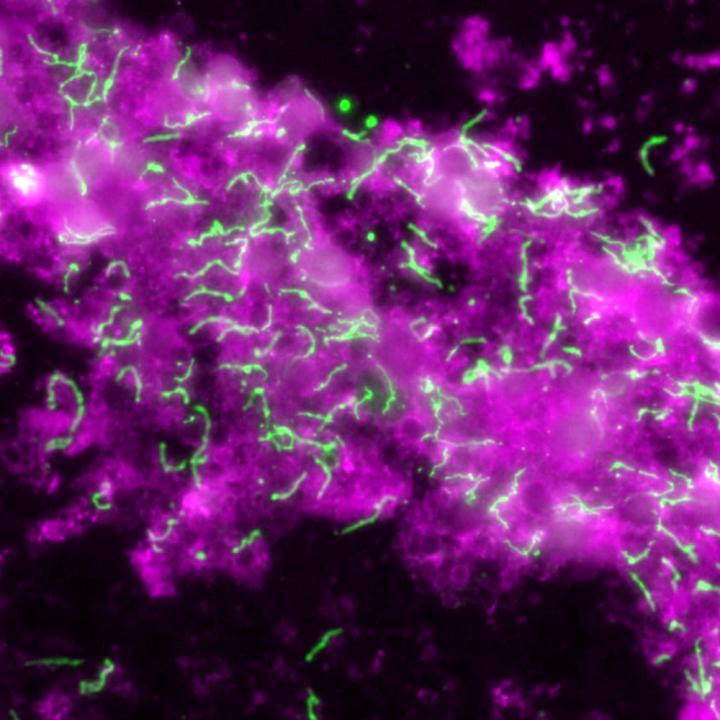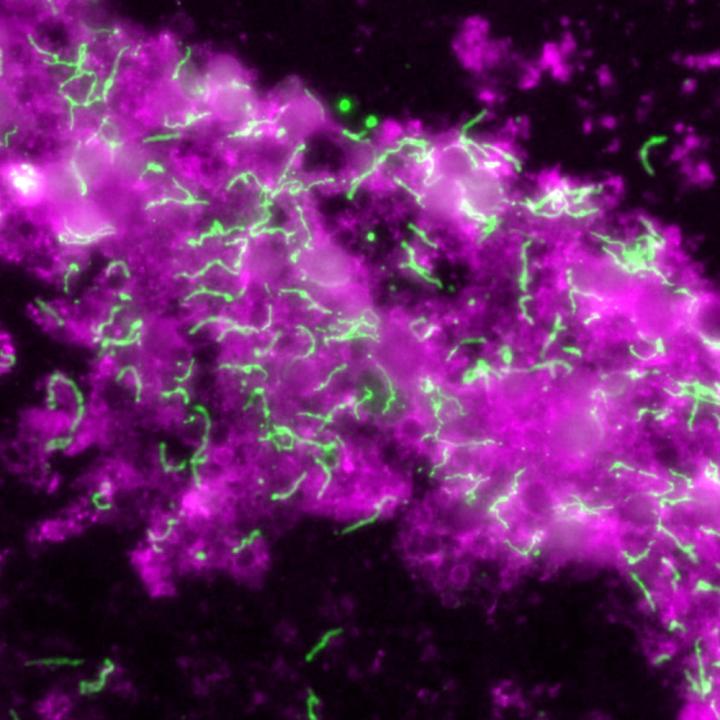
Credit: Micrograph by Dan Drecktrah.
MISSOULA – University of Montana researchers Dan Drecktrah and Scott Samuels were recently awarded $449,998 from the National Institutes of Health for the first year of a five-year project to study the bacterium that causes Lyme disease.
They will work in conjunction with Meghan Lybecker of the University of Colorado – Colorado Springs. Lybecker earned her Ph.D. from UM in 2007.
Together they will investigate the "Regulation of glycerol utilization in Borrelia burgdorferi." With an estimated 300,000 cases annually, Lyme disease is the most prevalent vector-borne illness in the United States. It results from infection with the spirochete Borrelia burgdorferi transmitted via the bite of a tick.
The objective of their work is to understand the regulatory mechanisms that allow B. burgdorferi to respond and adapt to varied carbon sources in tick-to-mammal transmission and in Lyme disease pathogenesis, which will lead to improved diagnostic, prevention and treatment strategies. The long-term objective is to alleviate the human disease.
Drecktrah also recently received nearly $260,000 in NIH funding for his project titled "Metabolic regulation during the two-host lifecycle of Borrelia." In this project, he will investigate a novel signaling pathway that regulates the interaction of B. burgdorferi with its tick vector. The long-term objective of this project is to understand the unique strategies and mechanisms B. burgdorferi uses to persist in the tick and transmit to mammals.
###
Media Contact
Sara Jestrab
[email protected]
406-243-6003
http://www.umt.edu
Original Source
http://news.umt.edu/2018/07/071018tick.php





